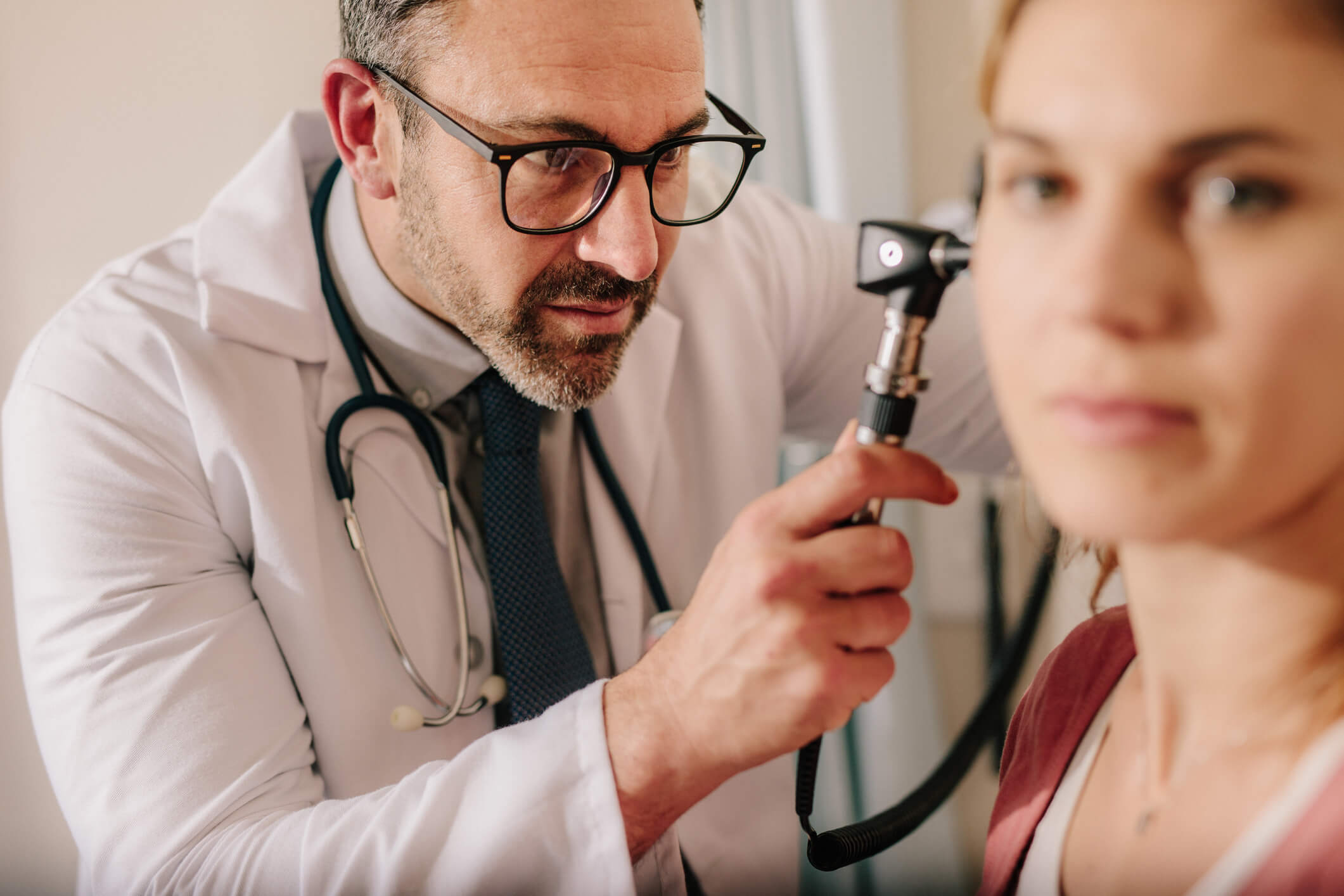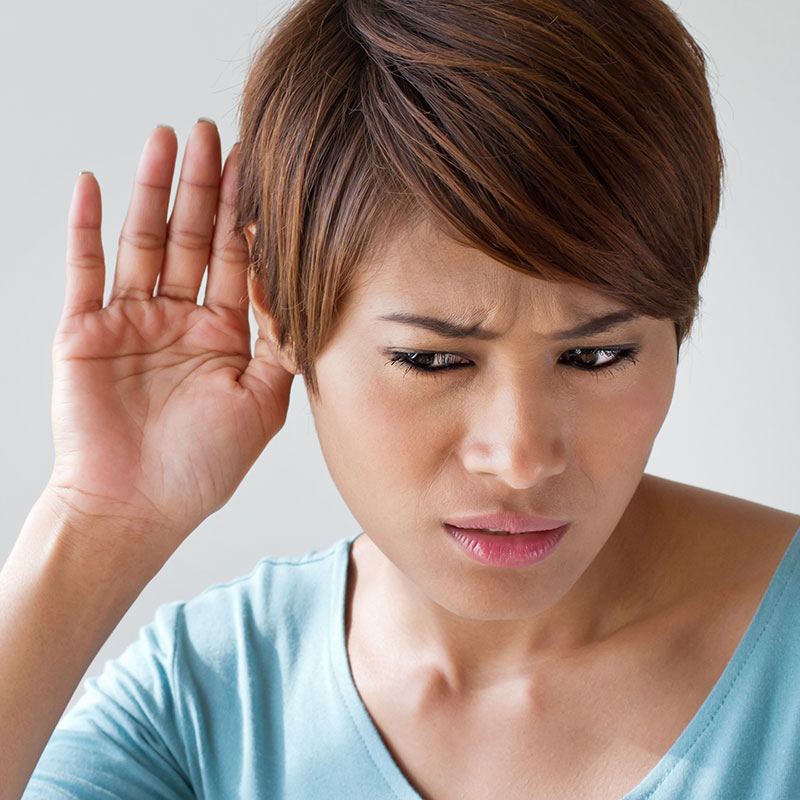
What’s Causing Your Hearing Loss?
Whether you just noticed that you no longer can hear the clock ticking, or you experienced sudden hearing loss, the key to getting treatment is determining what caused it in the first place. Sometimes all you need is a little earwax removed or some help draining fluid behind the ear.
Sensorineural
Hearing Loss
Sensorineural hearing loss is fairly common and might explain why you can hear a pin drop, but not be able to make out what your partner is saying. You’re born with tiny hairs called cilia in your inner ear that move when sound waves are present. Nerves translate the movement of these tiny hairs into information that goes to your brain, where it gets interpreted into distinct sounds and frequencies.
The better the movements are interpreted, the more easily you’re able to hear distinctions between sounds such as “D” and “T” or hear letters like “S”, “H” and “F”. Unfortunately, cilia are extremely delicate and can be harmed by loud noise or other trauma.
Cilia also help your brain determine how loud a sound is, where it’s coming from, and how far away it is.
The Most Common Causes of Sensorineural Hearing Loss
Sensorineural hearing loss happens when these tiny hairs are damaged. Often, this type of hearing loss is gradual, which is why many people associate it with aging. It’s thought that animals are able to regrow these hairs and regain their hearing when their cilia get damaged, but humans don’t seem to have this ability naturally.
Common causes of sensorineural hearing loss are:
- Loud sounds
- Head injuries or other trauma
- Diseases like diabetes or autoimmune disease
- High blood pressure
- Some medications
Treatments for Sensorineural Hearing Loss
While there are no current medical treatments to heal cilia, you can successfully treat sensorineural hearing loss with hearing technology such as hearing aids.
Conductive
Hearing Loss
Conductive hearing loss is caused by damage in the canal, in the eardrum, or caused by trouble with the bones in the middle ear. One of the most common causes of conductive hearing loss is compacted earwax
The Most Common Causes of Conductive Hearing Loss
You can get conductive hearing loss from:
- Obstructions in the ear canal
- Ear infections
- Abnormalities in the ear structure, including congenital conditions
- Tumors or other growths
- Fluid
Treatments for Conductive Hearing Loss
Depending on what’s causing the issue, your hearing specialist might suggest:
- Removing earwax or other obstructions
- Surgery
- Medicine to eliminate inflammation, fluids or infection
Combination Hearing Loss
You may also have a mix of sensorineural and conductive hearing loss. For example, you may have some damage to the cilia in your ear and have an obstruction in the canal. A hearing test can help your hearing specialist determine how to best treat your hearing loss and regain your quality of life.
When Should You Worry About Hearing Loss?
If you experience hearing loss, particularly in one ear, this may be an infection or inflammation, which is easily treatable if dealt with right away. If you ignore it, it can lead to permanent damage.
If you have any kind of sudden hearing loss, see a hearing specialist or doctor immediately. Even if your hearing loss is caused by a sudden loud noise, your doctor may be able to limit the damage by controlling inflammation.


